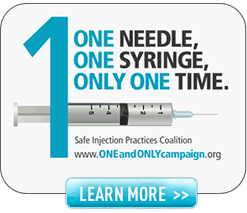
Lauren Lollini is a patient safety advocate who has been integral in changing laws to keep patients safe as well as a member of the Drug Diversion Prevention Committee.
I am grateful HONOReform had the opportunity to respond in the June 12 Concord Monitor to the horrible but all too common report of provider drug diversion by a healthcare worker.
As Steve Langan, HONOReform executive director, said, “Drug diversion may likely be the most enormous elephant in the room, in healthcare.” Anyone who has tried to pay attention to the many conversations on healthcare in the United States knows that there are many gaps and there have been many breakdowns.
If we continue to look the other way and deny and ignore the fact of widespread drug abuse and drug diversion among healthcare workers, more and more systematic challenges will develop.
According to recent statistics, there are as many as 379,000 addicted healthcare workers right now in the United States.
What does this mean for patients? They may not be receiving the medication they have been prescribed, in the recovery room or in other hospital settings. And, worse yet, they may receive an infection of bloodborne pathogens, such as hepatitis C or HIV.
At HONOReform, we believe a first priority in American healthcare is protocol and regulations that prevent drug diversion. This is a problem that can and must be fixed.
Robust materials developed by partners at the Safe Injection Practices Coalition the One and Only Campaign will soon be in place. We welcome the opportunity to help distribute these materials to leadership at healthcare facilities throughout the country.
Messaging and education are essential, important; but, in this case, we need government leaders at all levels to take a stand. Patients have been placed over and over in a vulnerable position, and addicted healthcare workers continue to practice with very little oversight and not nearly enough intervention.
In the near future, we will make an announcement of an upcoming meeting on drug diversion prevention.

